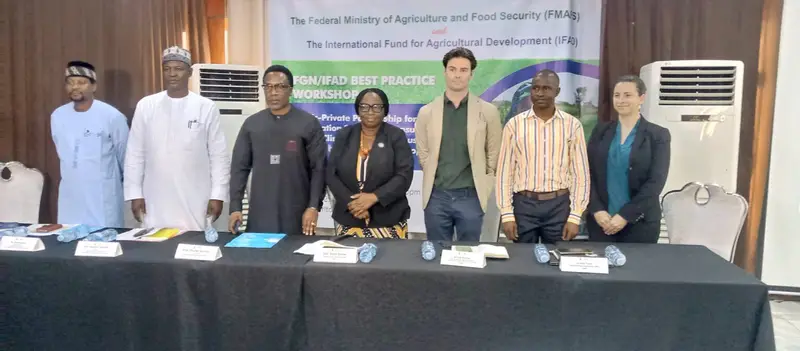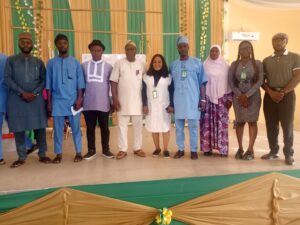
The International Fund for Agricultural Development (IFAD) has said public-private partnerships (PPP) in climate-smart agribusiness can turn climate challenges into opportunities.
IFAD said such opportunities include economic growth, youth employment and sustainable development.
VIFAD Country Director, Mrs. Dede Ekoue, said this on Tuesday in Abuja at the Federal Government/IFAD Best Practice Workshop on PPP for Climate Information Services.
The workshop also featured consultations on the Climate Smart Agribusiness Partnership for Resilience Project (CSAPR).
The workshop was themed “Leveraging PPPs for Climate Information Services and advancing consultations on the Climate Smart Agribusiness Partnership for Resilience Project”.
It brought together stakeholders to chart a collective roadmap that connects local realities with national priorities, in line with continental and global commitments.
Ekoue said the project seeks not only to promote adaptation but also to create opportunities for inclusive prosperity.
“Climate information is life-saving, productivity-enhancing and resilience-building. Farmers cannot adapt without timely and reliable information on when to plant, harvest or prepare for extreme weather.
“Agribusinesses also cannot scale sustainably without reliable data, early warning systems and risk management instruments,” she said.
She recalled that at the recent UN Food Systems Summit in Addis Ababa, leaders reaffirmed that food systems transformation must be anchored in resilience, inclusivity and sustainability.
She also noted that Nigeria played a leadership role in advancing digital solutions and stronger partnerships.
Ekoue further highlighted the Kampala Declaration, which underscored the need to embed resilience, mobilise investment for innovation, and place women and youth at the centre of agricultural transformation.
She commended the Nigerian Meteorological Agency (NiMet) for its role in safeguarding livelihoods through climate services.
She stressed that deeper partnerships with the private sector and development actors are vital to ensure information reaches millions of smallholder farmers.
“Precisely, PPPs are vital. They enable innovation to meet scale, moving from pilot interventions to market-driven solutions that can sustainably reach millions,” she added.
The Director-General of NiMet, Prof. Charles Onosike, also identified climate-smart PPP as critical in integrating climate-related risks into infrastructure development.
He said the agency recently unveiled the Enhancing National Climate Services (ENACTS) Maproom, a digital tool that provides real-time forecasts, historical data and tailored advisories to help farmers improve resilience and productivity.
Onosike said NiMet is engaging private sector actors in the Climate Information Services (CIS) value chain to establish sustainable Digital Climate Advisory Services (DCAS) for smallholder farmers.
“DCAS are designed to deliver timely and accurate climate information, enabling farmers to make informed decisions that improve crop yields, protect livelihoods and strengthen resilience to climate change,” he said.
He commended IFAD for its long-standing support through initiatives such as the Livelihood Improvement Family Enterprises in the Niger Delta (LIFE-ND), the Value Chain Development Programme (VCDP), and the Special Agro-Industrial Processing Zones (SAPZ).




